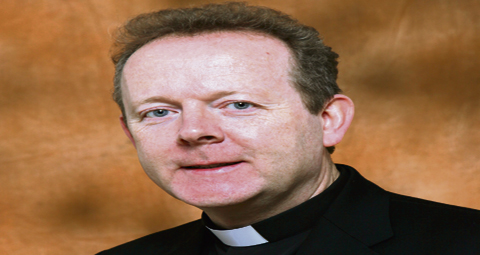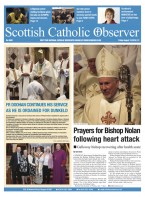May 8 | ![]() 0 COMMENTS
0 COMMENTS ![]() print
print

Irish Church steps up campaign opposing same-sex marriage
The Catholic Church in Ireland stepped up its campaign for a no vote in the same-sex marriage referendum on May 22, with its leading bishops issuing pastoral letters to their dioceses.
Archbishop Eamon Martin of Dublin and other Irish bishop are leading opposition to (Marriage Equality) Bill 2015 that would make same sex-marriage legal in Ireland.
“We have got ourselves into the situation that many people won’t even raise these issues in their families and workplaces for fear of being ridiculed or condemned as homophobic,” Archbishop Martin said.
He added it is a ‘fact of nature’ that same-sex unions are ‘fundamentally and objectively different’ from the sexual union of a woman and a man, which is ‘naturally open to life.’
He said the Church ‘cannot support an amendment to the Constitution which redefines marriage and effectively places the union of two men, or two women, on a par with the marriage relationship between a husband and wife.’
Pastoral letters from eight senior bishops were also read out by priests at parish Masses around the country last Sunday. Bishop Philip Boyce of Raphoe insisted: “Equality and human rights should be afforded to everyone, but it should be done without sacrificing the institution of marriage and the family.”
“The Church respects an equality that recognises difference, not an equality that destroys all difference,” he went on. “To recognise the difference in the way we are made is not discrimination and it does not undermine equality.”
Reflecting the view of his fellow bishops, Bishop Boyce said the Church accepts people ‘with homosexual tendencies’ with respect and compassion but their legal rights were already protected in civil partnerships.
He said a yes vote on May 22 would have ‘serious implications’ for children.
“Every child, no matter what sexual orientation he or she may have, has the human right to a father and a mother,” Bishop Boyce said. “We should not vote to legalise intentionally a situation where a child would be fatherless or motherless, not able to say ‘dad’ and ‘mammy’ to two parents.”
Bishop Michael Smith of Meath said there hadn’t been a meaningful debate in the Irish Parliament.
“I do not think that there is anything offensive in believing, as we have always done, that marriage is a permanent union between a man and a woman,” Bishop Smith said.
“The search for equality in our society will not be advanced by undermining the very cornerstone on which a just and stable society is built.”
The Faith in Marriage Equality group called on the Church to ‘respect the freedom of conscience’ of those Catholics voting yes
Polls suggest the amendment will pass by a large margin.











